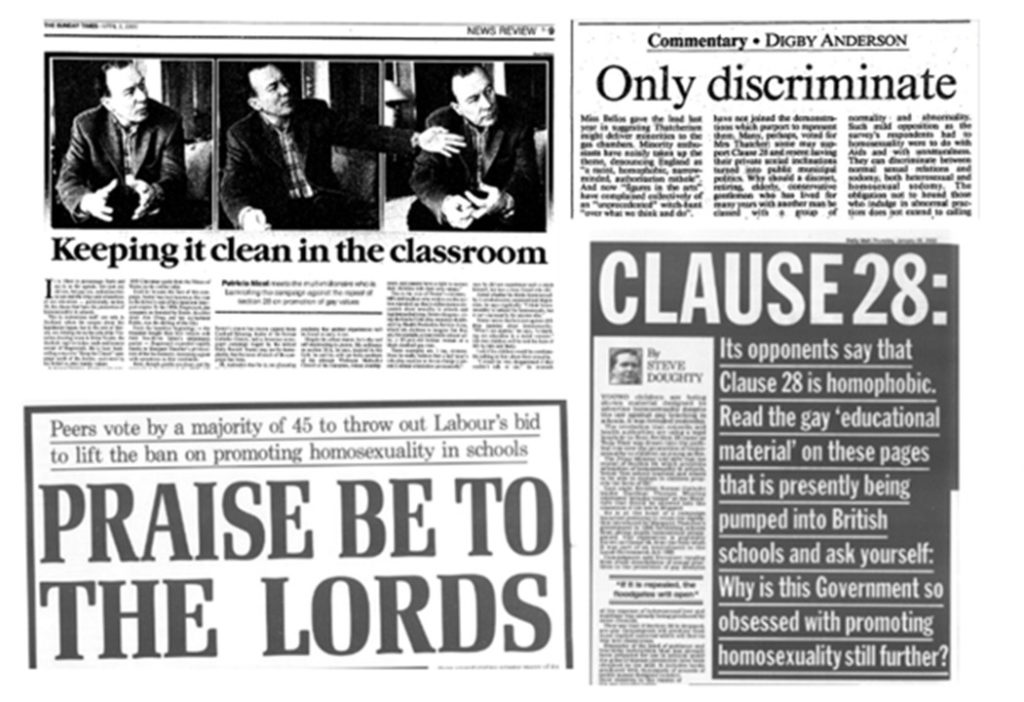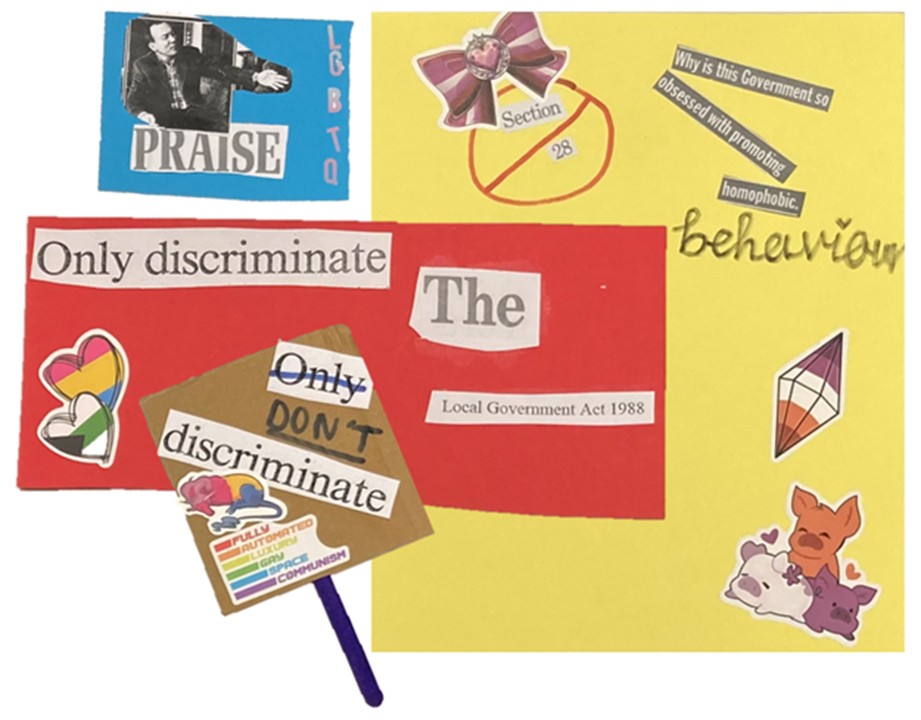Dr Helen Birkett tells us about how Engaged and Participatory Research Funding helped support the LGBTQ+ Schools Champions Scheme. Working with Dr Chris Sandal-Wilson, and major local charity, Intercom Trust, the project has explored new avenues for engaging young people with LGBTQ+ history, and encouraging belonging amongst LGBTQ+ pupils.
Amount of award: £3,115
The LGBTQ+ Schools Champions scheme is an off-shoot of the ‘Section 28 and its afterlives’ project. Section 28 was homophobic legislation in force from 1988 until its repeal in England and Wales in 2003. It banned schools and local authorities from “promoting homosexuality”, including as “a pretended family relationship”. The ‘Section 28 and its afterlives’ project marked the twentieth anniversary of the repeal of this legislation by exploring its legacies in the South West. This resulted in the creation of a new local LGBTQ+ oral history archive, a touring exhibition, and the development of creative workshops that engage with this history in hands-on, innovative, and empowering ways. Engaged and Participatory Research (EPR) Funding gave us the opportunity to partner with the Intercom Trust, the main LGBTQ+ charity in the South West. It also allowed us to employ two LGBTQ+ university students as workshop leaders, and to take adapted versions of our workshops into six local schools.
Growing up as a young LGBTQ+ person in the UK remains difficult. Stonewall’s 2017 School Report confirmed that LGBTQ+ pupils in British secondary schools frequently suffer victimization and bullying by their peers, including in the South west, where 49% of pupils reported being bullied for being LGBT. Stonewall’s School Report also noted that seeing openly LGBT members of school staff helped many LGBT pupils to accept themselves, but that only around a quarter of pupils knew of gay or lesbian staff members and only 3% knew of ones who were trans. Where available, ‘LGBTQ+’ or ‘Pride’ clubs in schools can help to alleviate the impact of victimization and bullying, and help pupils to feel more part of the school community.

Our LGBTQ+ Schools Champions scheme aims to respond to this situation in several ways. In the workshops, participants are given a brief introduction to Section 28, then provided with a carefully selected set of historic newspaper articles. Using crafting materials, they are asked to transform hostile text into positive, self-affirming LGBTQ+ messages. The workshops are designed to connect participants with recent LGBTQ+ history to help increase their sense of belonging, and to promote mental health, wellbeing, and resilience through creative self-expression. By employing LGBTQ+ university students as workshop leaders, the workshops also bring LGBTQ+ pupils into contact with relatable, real-life role models at the next stage of life.
Because the scheme involves working with school-age children and children who identify as LGBTQ+, it was defined as particularly high-risk research, which necessitated a lengthy and rigorous ethics process. However, input from committee members, particularly from the School of Education, helped troubleshoot the scheme and provided crucial Safeguarding guidance. The pilot also demonstrated the importance of our partnership with the Intercom Trust. To ensure our visits complied with school visitor protocols, we worked closely with Hollie Wright, the Devon Schools and Young Person Project Worker, who organized and accompanied us during this process.
Feedback from the participants and the Champions indicates that the scheme was successful, and the workshops were an enjoyable and meaningful addition to club sessions. Pupils engaged with the historic content of the activity, with some expressing ownership of ‘their history’, and others also recognising the deeper intentions of the activity. As one pupil stated ‘it, like, teaches us especially, like, as children that even if there are really negative things that, like, specifically target us, we can find ways to switch it around and to, actually, like, take ownership of, like, ourselves.’ Participants also valued the interaction with the LGBTQ+ Champions, with some saying that it made them feel more positive for the future.
We hope to publicise the success of this scheme, and attract other potential partner organisations, by publishing a reflective co-written account in an educational or LGBTQ+ studies journal. Working with LGBTQ+ clubs in local schools, as well as LGBTQ+ University students, should be seen as a priority in academic-led LGBTQ+ inclusivity initiatives. Going forward, we recommend that the LGBTQ+ Schools Champion scheme be scaled up, and continue this crucial work engaging with LGBTQ+ history, and supporting the LGBTQ+ youth of today.

